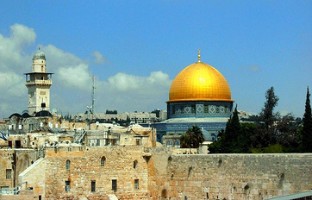Double duty

When George Mitchell quietly resigned as special envoy for the Middle East, I was dismayed. I've always thought of him as a man of strong convictions but also as a pragmatist, a practitioner of politics as the art of compromise. Did he find the Israel-Palestine puzzle so intractable that he concluded that his efforts on behalf of the U.S. government were futile?
Richard Haass, president of the Council on Foreign Relations, observed recently that while Israel continues to be successful economically, it is increasingly isolated internationally; indeed, it is regarded by most of the world as the chief obstacle to Middle East peace (Time, May 2). Although the Middle East is in a particularly difficult time, with Hamas and Hezbollah on Israel's borders, the future of the Jewish state is at stake.
Churches, including my own, have a long relationship with the people of the Middle East and a mission presence nearly a century and a half old. We established schools, colleges and hospitals in the region and have ecclesiastical relationships with indigenous Middle Eastern churches. Our partners on the ground want and need American church support as they work for an end to the military occupation by Israel and for the self-determination of the Palestinian people.





